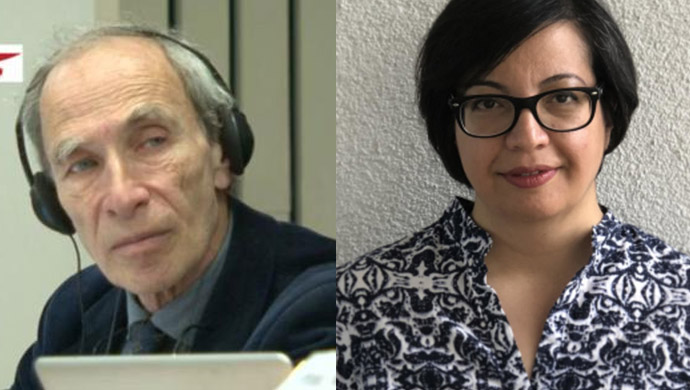On Thursday, March 24, the trial of Hamid Noury, an Iranian regime operative for his role in the summer 1988 massacre of over 30,000 political prisoners, continued in Stockholm with Professor Eric David, a renowned international human rights law expert and president emeritus of the Centre for International Law in the Free University of Brussels, provided his expertise on this topic. On Wednesday, Shadi Sadr, another international law expert and one of the founders of the Justice for Iran organization, took the stand.
Most of the over 30,000 political prisoners executed during the 1988 massacre in prisons across the country were members and supporters of the Iranian opposition People’s Mojahedin Organization of Iran (PMOI/MEK) . Noury himself was involved in the hundreds, if not thousands, of killings that took place in Gohardasht prison of Karaj, a city located west of Tehran, the capital of Iran.
Professor David said that in the conflict between the PMOI/MEK and the mullahs’ regime is considered a non-international conflict, adding that a non-international conflict needs to be transparent, meaning the parties involved must have clearly declared war, the officials involved must be known and they should be identifiable. These conditions are valid regarding the conflict between the PMOI/MEK and the Iranian regime. As a result, the 1988 massacre of political prisoners in Iran needs to be classified as a non-international conflict, according to Professor David.
According to international law and the Geneva Conventions, crimes committed in non-international conflicts, tantamount to international wars, are considered war crimes, Professor David continued. These laws were all imposed prior to 1988, the year of the massacre in Iran, he added, emphasizing even if such laws did not exist in 1988, the lack of laws in major crimes does not prevent the criminals from being punished.
During World War II there was not a word about war crimes, even regarding international wars, in the laws of many countries such as Norway and Finland. However, many WWII criminals were prosecuted and punished in these countries based on laws regarding war crimes. Furthermore, the 1988 massacre is considered a war crime, crime against humanity, and genocide, this expert concluded.
On Wednesday, March 23, the court listened to the expert take of Shadi Sadr who has been investigating along with her colleagues the torture and violence against political prisoners since 2010. Her work has a special focus on female political prisoners in the Iranian regime’s prisons during the 1980s. Sadr emphasized that their research also covers the 1988 massacre of political prisoners in more than 20 prisons across Iran.
The bodies of massacred prisoners were not transferred to their families and in most cases the families of political prisoners executed in Tehran’s notorious Evin prison or Gohardasht prison in 1988 believed the bodies of their loved ones were buried in mass graves located in an area named Khavaran located southeast of Tehran, Sadr explained.
The Justice for Iran organization has conducted investigations into the mass graves of 1988 massacre victims in different cities of Iran, Sadr added, emphasizing that the mullahs’ regime has been attempting to destroy these sites.





